This April 17th is the International Day of Peasant Struggle. A day commemorated each year by La Via Campesina as an opportunity to highlight the struggle for land justice for small farmers and indigenous peoples across the world.
Jyoti Fernandes, campaigns coordinator for the Landworkers’ Alliance, recently visited the powerful Landless Workers Movement, MST – Movimento dos Trabalhadores – in Brazil to learn more about the massacre on April 17th that sparked the global movement for agrarian reform and take inspiration from their ongoing work to reclaim the land.
She writes:
On behalf of LWA I have been working to support land rights struggles across the world and was invited to visit the MST- Landless Workers Movement- in Brazil to visit their projects, share experiences and to find out what we can do to mutually support each other.
This powerful movement was born in the 1970s when, as result of the credit flowing towards the Green Revolution, large estate owners and agro-industrial conglomerates were using huge amounts of land, while most people were forced to migrate to the city.
At this time there were many landless people who shared the vision of taking back some of this land. They were workers affected by dams, migrants, sharecroppers, peasants all workers without land with which to produce food.
I was moved to tears when, after being guided by my new found compañeros through miles and miles of cattle ranches, we passed through El Dorado de Las Caracas – a small town in Pará state, Brazil – which was the site of the massacre that sparked the movement. On the road to this small frontier town on April 17th 1996, many families marched to pressure the Government to legalise a settlement they had formed on the Macaxeiras farm owned by a huge landowner. They were camped along the roadside waiting for the hearing but at 4 pm were surrounded by the military police, who had received money from the landlord, closed the road and attacked the workers. Nineteen landless workers were murdered, some executed where they were fallen or had surrendered, two others died months later from their injuries and more than 70 people – men, women, and children – were injured and suffered serious after-effects.
The massacre drew international attention to the serious inequality in land in Brazil and across the world. In the memory of the martyrs of Carajás April 17th became the International Day of Peasant Struggle for La Via Campesina.
From this beginning, MST began a systematic process of gathering landless peoples into groups of 100 families or more and moving as a huge army together to create encampments on land owned by the big landlords. They occupy land that is “underutilised for the public good”, meaning used to only produce industrial commodity crops, and claim it under the Brazilian constitution which contains measures to give titles for land used for the common good.
The settlements are divided into holdings of 10 hectares per family, or managed as cooperatives producing agroecological food. They build houses, schools, and processing factories. In the last 30 years they have settled more than 350 thousand families and created more than 400 cooperatives working collectively to produce food without GMOs or pesticides. Most of this food is sold to the government to supply state-run schools with healthy organic food, but they also run shops and export high quality food products overseas. They’ve now asked the Landworkers’ Alliance to import these products as a way for us to show solidarity with their movement and bring in income for their agroecology training schools since government funding has been cut off by Bolsonaro’s right wing policies.
I was blown away visiting their cooperatively owned facilities for processing such as juice and rice factories, and helping them to distribute the produce from all the small farms on the settlements to schools and hospitals. Each holding uses their own agroforestry systems to grow small amounts of agroecological food, but, through this collective action, they were able to process huge quantities of food with swish equipment that each producer would not have been able to use if they sold their produce individually or processed on an individual scale. We could achieve so much more as an ecological farmers movement in the UK if we were to work together in this way.
Alongside providing food, equipment, agroecological training and education to the members of MST, the organisations make a strong commitment to a just and egalitarian society. They feed thousands of people facing food insecurity daily using the produce from their settlements. During the COVID crisis, MST was one of the main providers of food aid to those ignored by Bolsonaro’s government. I spent time with the volunteer brigade preparing food on International Women’s Day and felt their love and generosity as trucks of organic pork and vegetables came from the settlements to the city in preparation for their feast. The feeling of connection to the earth and solidarity between the people is tangible and almost magical. They move as the kindest army in history – together, as an organism, with everyone an important part of something much larger than themselves.
MST was one of the founders of La Via Campesina in 1993. From 1950 to 1980 the biggest displacement of peoples on the planet took place, giving huge amounts of power to large landowners across the world, so the experience of MST resonated globally and grew. LVC now ties together more than 300 million peasants across the world carrying on the fight for agrarian reform which continues today.
Witnessing this source of so much of this vast worldwide movement left me deeply moved, knowing our struggles in some ways are very different, but in many ways the same and that by working together in solidarity we can be stronger.
La Lucha Continua! Viva!
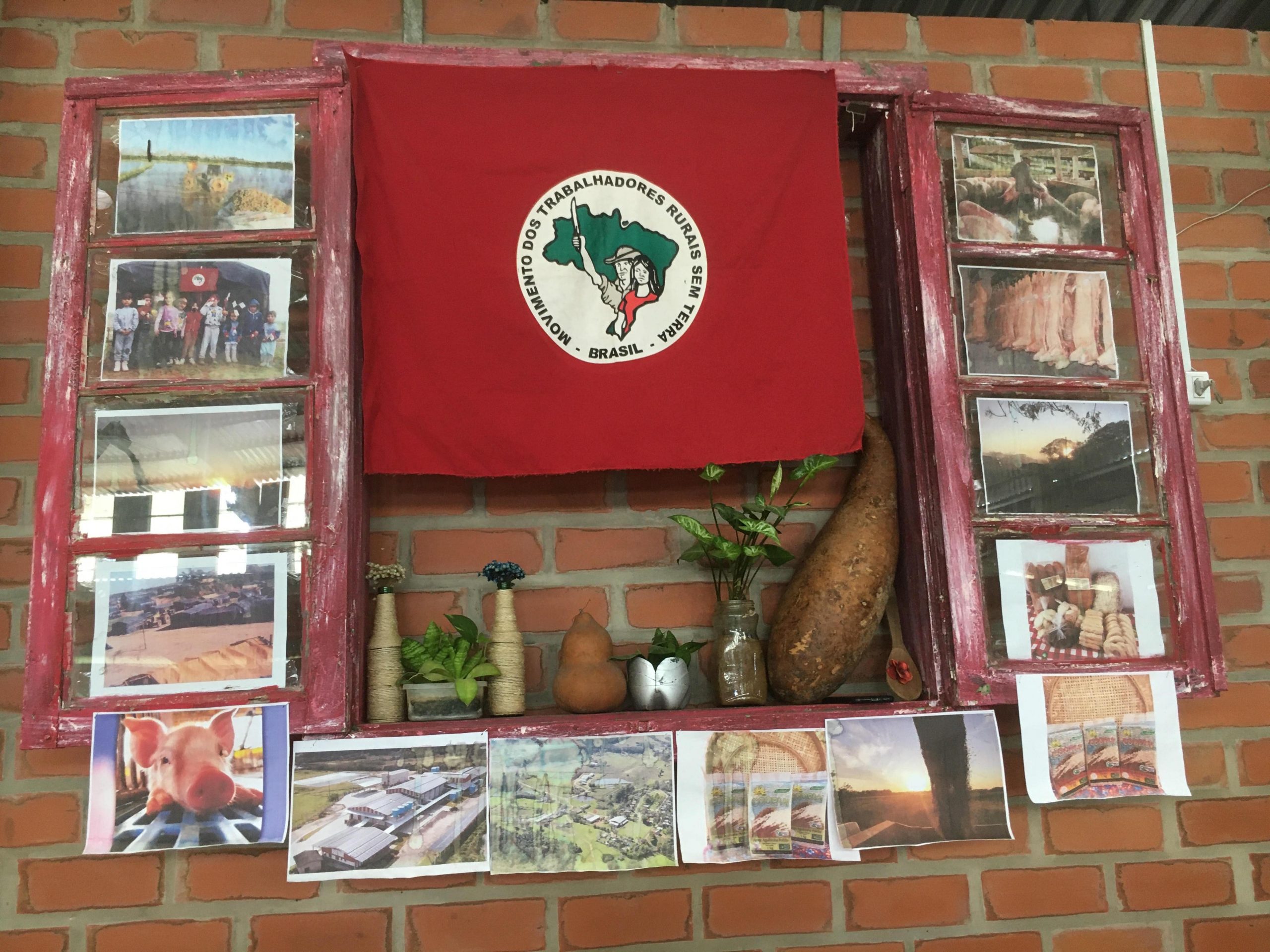
Photos celebrating the history of the Coopan Cooperative, Porto Allegre, Brazil
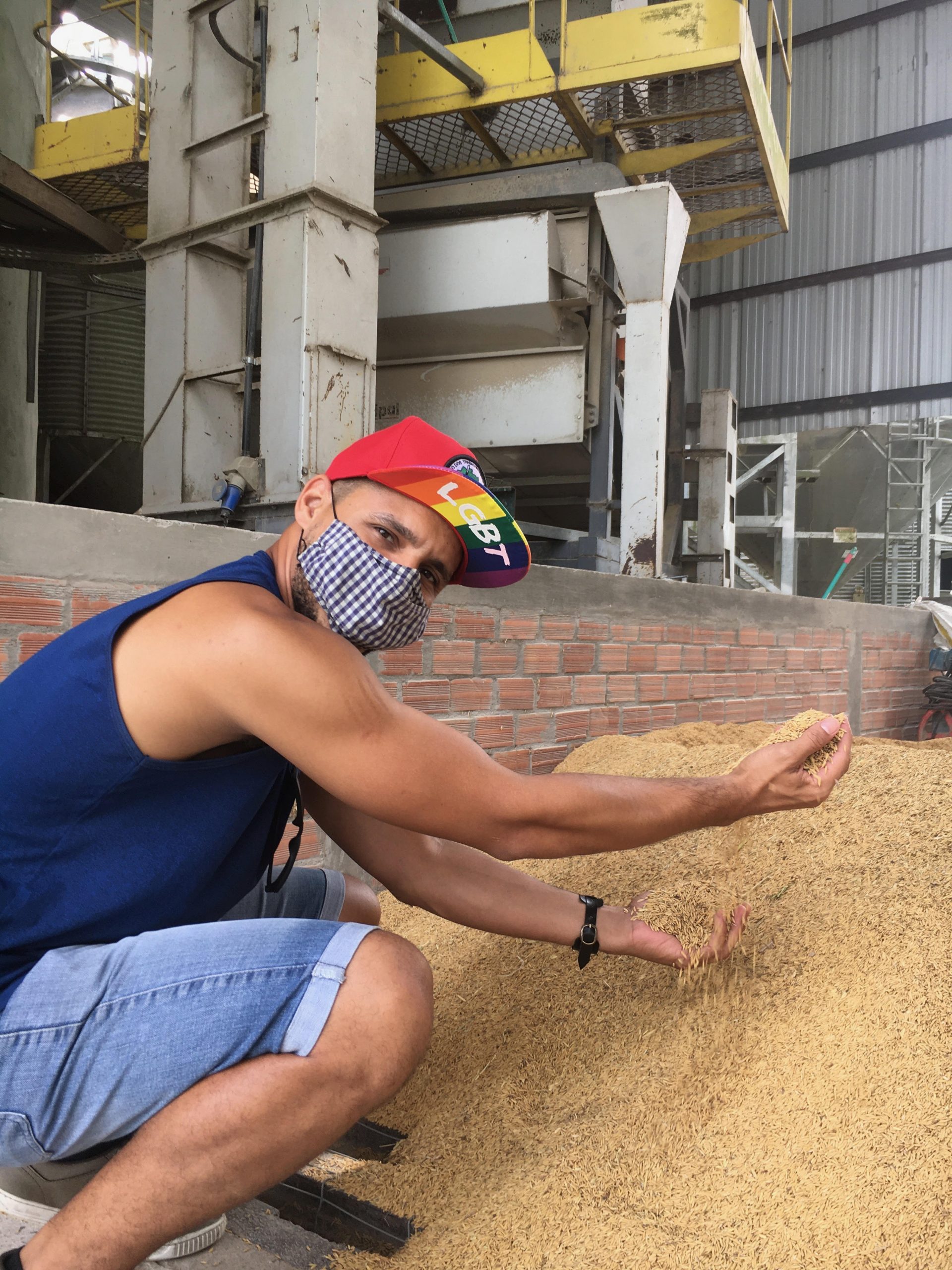
MST processing factory for agroecologically grown rice from their settlements in Porto Allegre
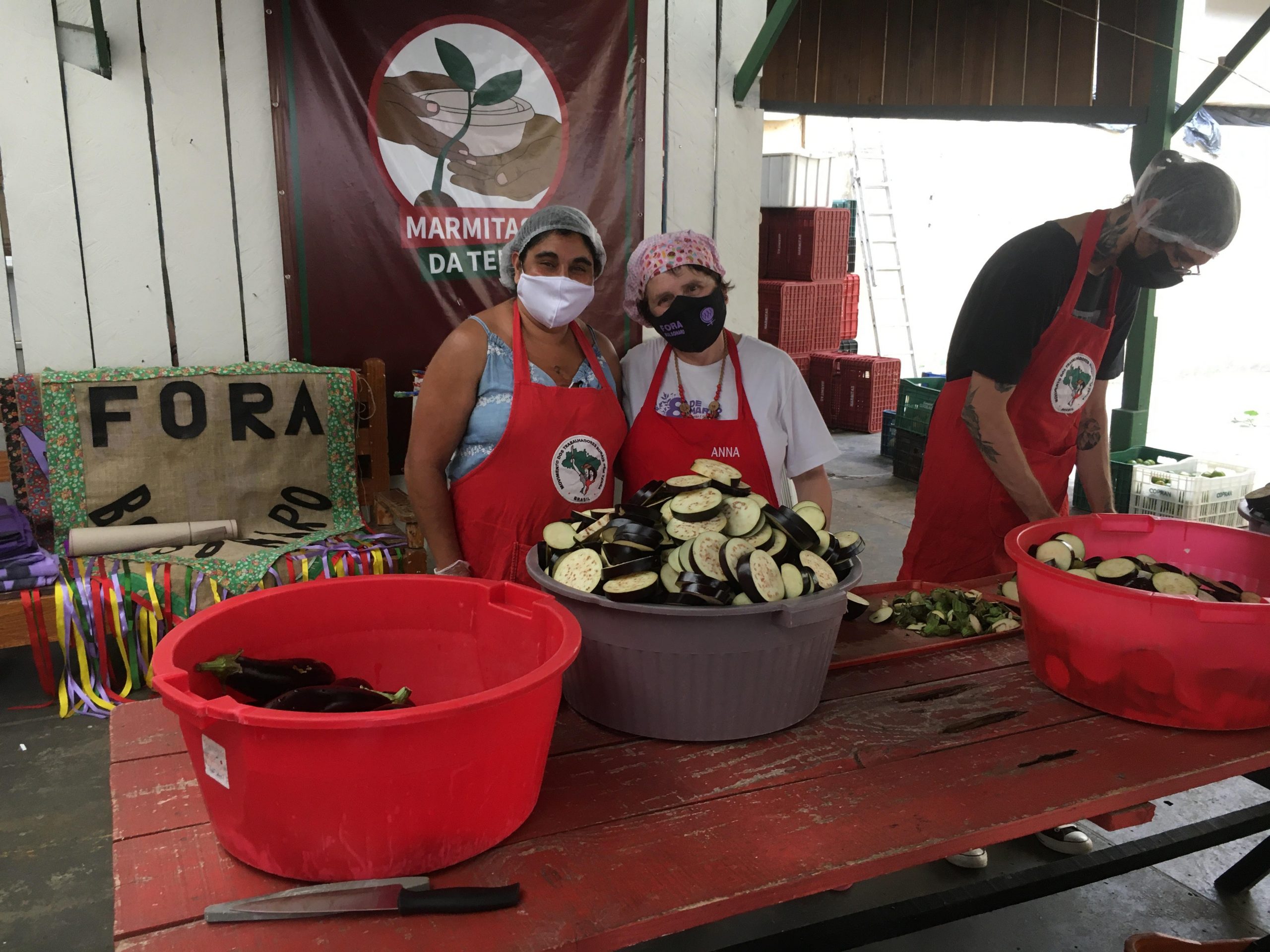
Cooking for a free meal in Curtiba on International Women’s Day with MST
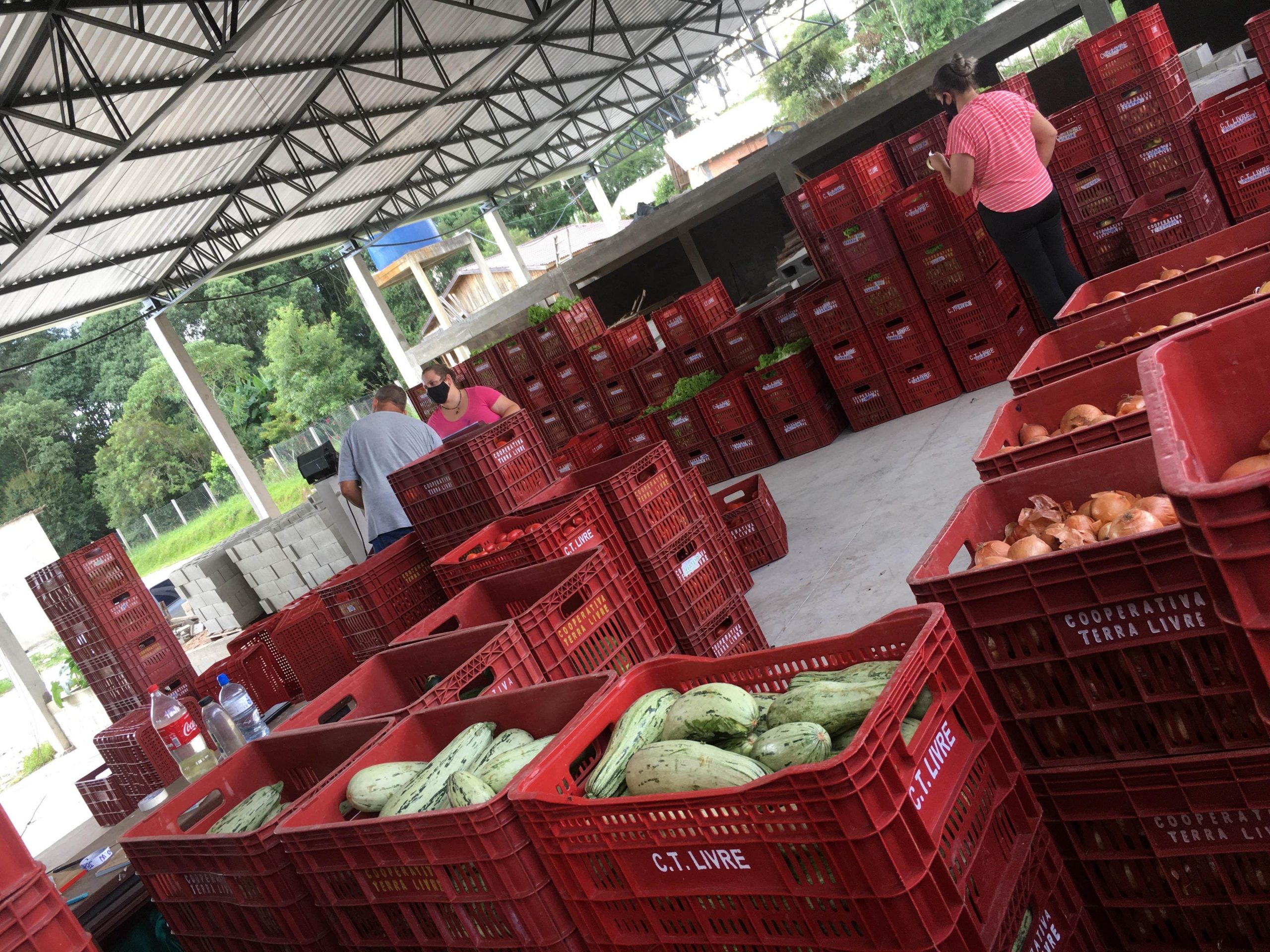
Hub for packing and distributing produce from the settlements to schools
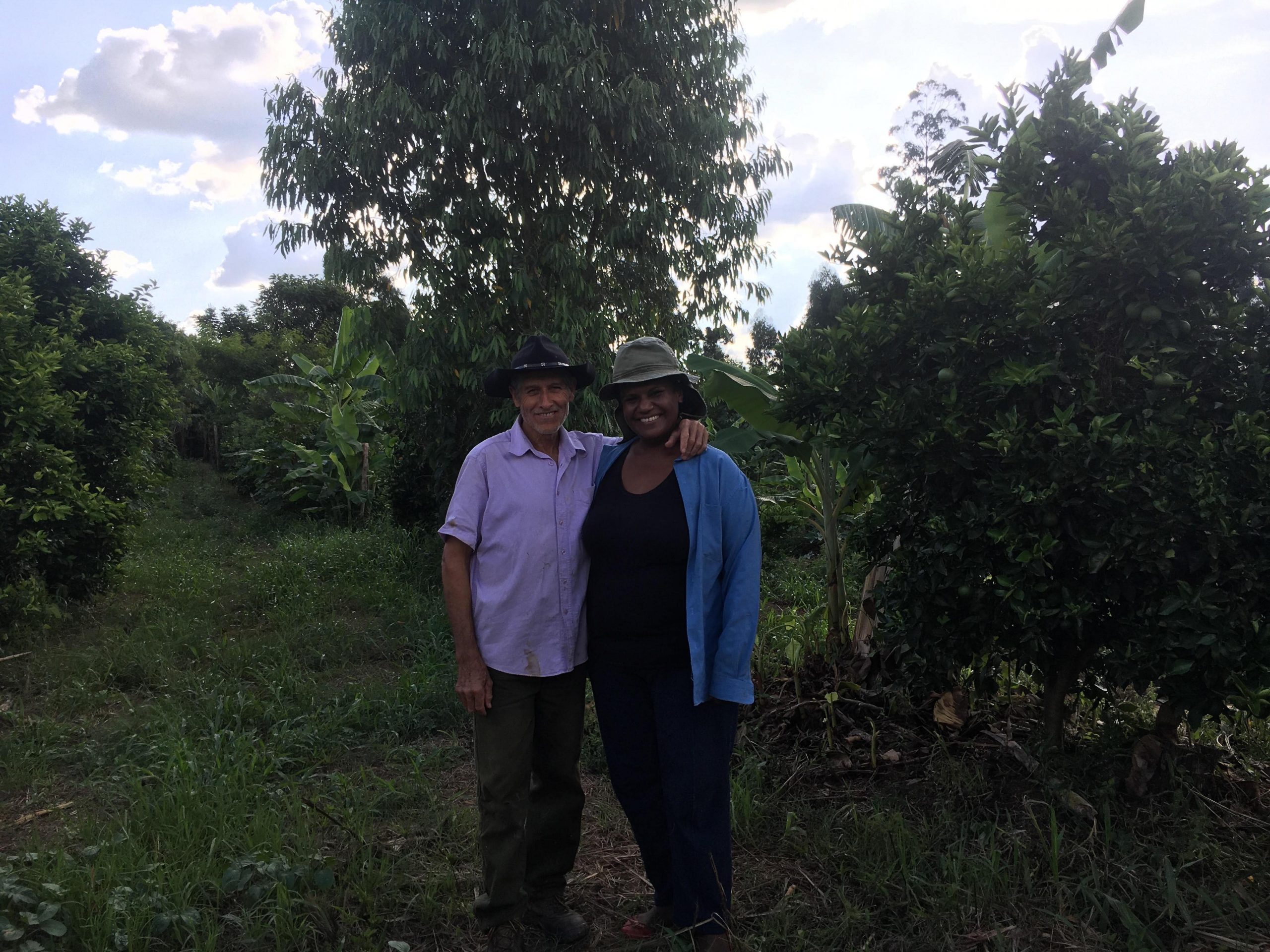
A couple at their 10 ha agroecological smallholding on an MST agri-village settlement
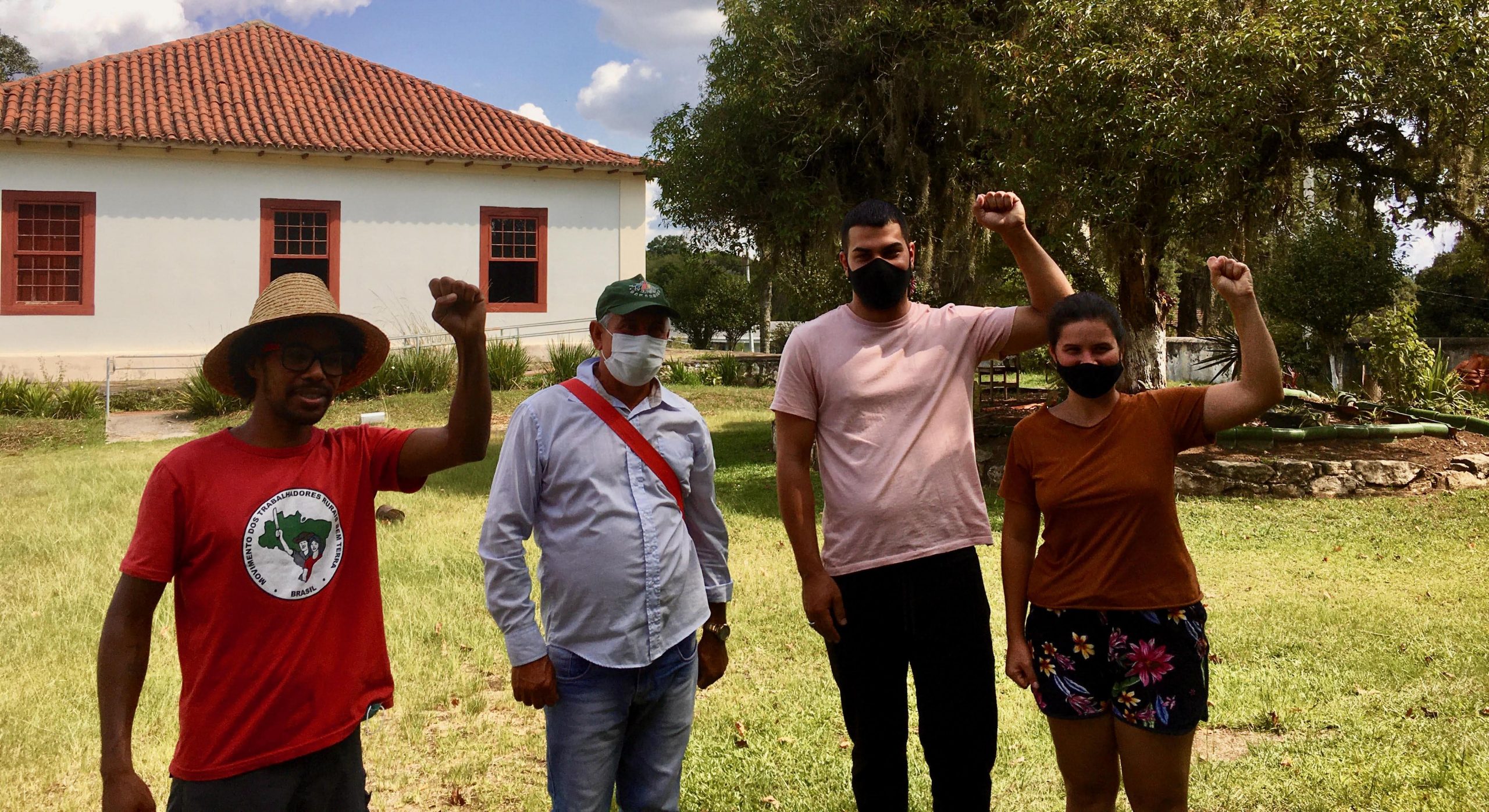
Friends from MST at their agroecology training schools set up on a reclaimed plantation. The classroom was formally the plantation home with slave quarter beneath it and the tree was used to whip slaves, so they teach this history of exploitation alongside new values as part of their agroecological training.

